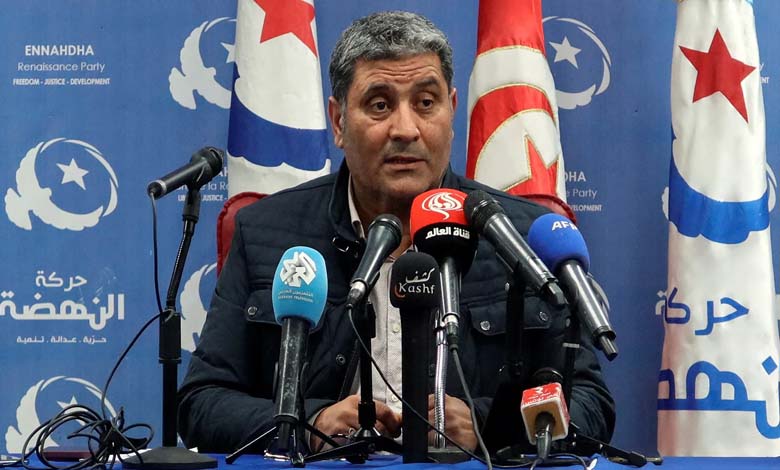Ghost of the Ennahdha Movement in Tunisia… “desperate shots” to tarnish the electoral commission

Less than two weeks before local elections, the Ennahdha Movement in Tunisia is still maneuvering, with their specter looming among smear campaigns targeting the electoral committee this time.
On Wednesday, the head of the Higher Electoral Commission in Tunisia, Farouk Bouaskar, confirmed that the committee is targeted by smear campaigns by unidentified parties.
Bouaskar only hinted that smear campaigns appeared particularly during the campaign for the Council of Regions and Provinces elections.
The elections for the Council of Regions and Provinces are expected to take place on December 24th of this month, with 7,205 candidates participating, including 1,028 with disabilities, competing in 2,155 electoral districts.
Bouaskar explained that the commission has referred 12 complaints to the judiciary against “violators targeting the electoral commission, falsely attributing things to it, and tarnishing the reputation of its members.”
He noted that the commission is accustomed to such attacks in every electoral process, where the electoral process, the work of the committee, and the candidates are always targeted.
Regarding the calls from the Ennahdha and its allies to boycott the elections, Bouaskar confirmed that the commission is also accustomed to such calls, whether from parties or political figures, stating that it is a matter in which the commission does not intervene.
He added, “These calls will not affect the electoral process because it concerns local elections in municipalities and individuals from the same municipality.”
These elections will be held amid the boycott by the Ennahdha and its allies, including the “Ennahdha” movement and the “Labor and Achievement” party, in addition to the “Democratic Current” and “Workers” parties.
Normal pace
As for the election campaign that started on December 2nd of this month, Bouaskar said, “The campaign is proceeding at a normal pace, with no major violations recorded by candidates in the local elections.”
Regarding monitoring the coverage of the election campaign in the media, Bouaskar said, “Matters have become clear according to Decree No. 8 (of the electoral law), where the regional election authority, including monitoring the election campaign on all media, has become the responsibility of the authority.”
He pointed out that this authority is limited in time and subject, as it continues for only 21 days and only cares about programs related to election campaigns.
Bouaskar emphasized that local elections are “the first step in a long electoral path to complete the elements of local governance.”
He continued, “This is followed by the concentration of regional councils in 24 governorates, then the councils of regions, and finally the concentration of the second parliamentary chamber represented by the National Council of Regions and Provinces, thus completing the legislative function as stipulated by the constitution.”
According to Bouaskar, “The polling stations will number about 5,000 centers with around 11,000 polling stations.”
He explained that members of local councils will be elected using the individual voting method in 2,155 local electoral districts, including 279 municipalities (administrative divisions).
He clarified that what is being presented will signal the birth of 279 local councils in various regions, and among them, 77 members will be selected for the membership of the Council of Regions and Provinces.
What is the council of regions and provinces?
The current parliamentary system in Tunisia is based on two parliamentary chambers, instead of one chamber before the dissolution of the parliament led by Rashid Ghannouchi, the leader of the Ennahdha Movement.
The Tunisian constitution, approved on July 25, 2022, stipulates that the two chambers agree on a number of draft laws, including the finance law, and all local development plans.
According to Article 82 of the new constitution, this council is composed of deputies elected from regions and provinces, as each regional council elects 3 members to represent their region in the National Council of Regions and Provinces.
The elected members in the regional councils in each region elect one representative to represent this region in the National Council of Regions and Provinces, and the deputy representing the region is compensated according to the electoral law.
According to the constitution, “Projects related to the state budget and local and national development plans must be presented to the National Council of Regions and Provinces for approval, to ensure balance between regions and provinces.”












